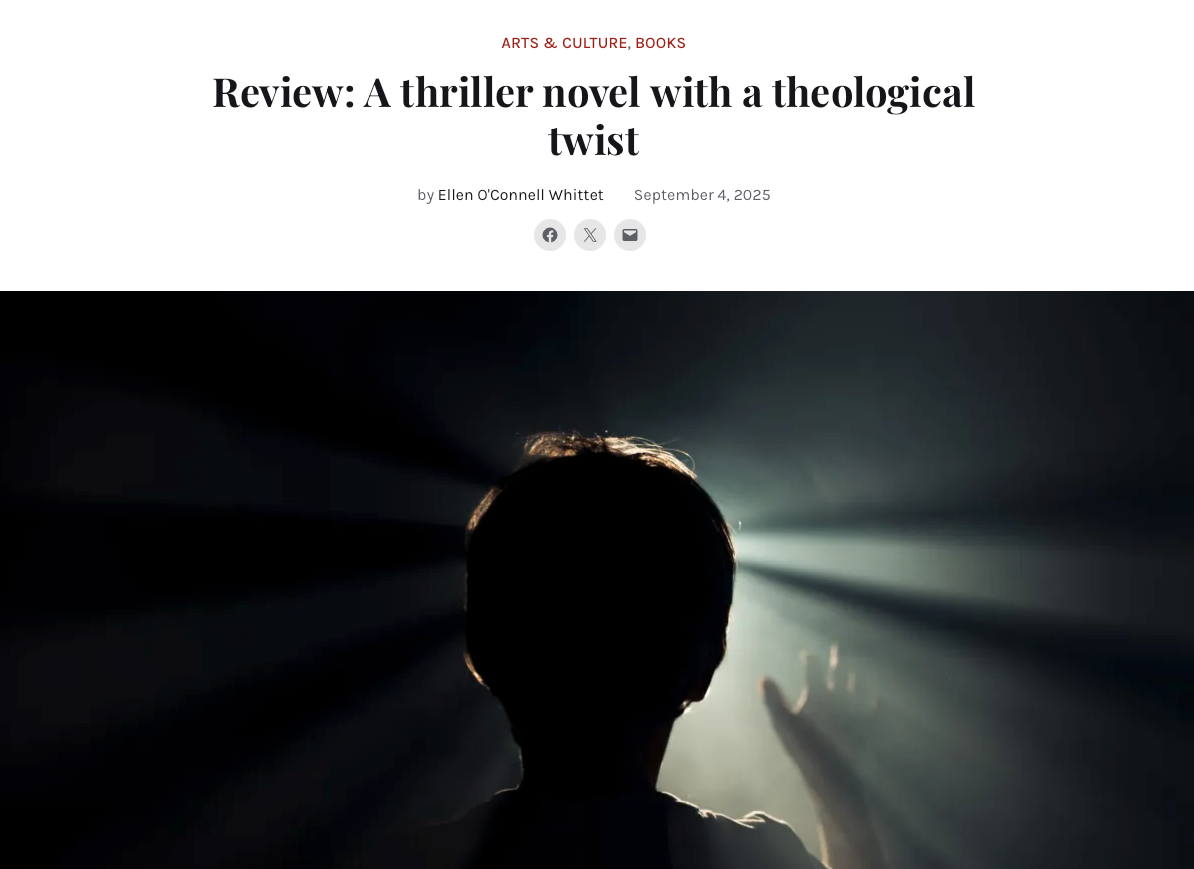America Loves The Nimbus!

America, the magazine, that is, which just published this fantastic review by Ellen O'Connell Whittet. Of course I'm happy for any cheering notice of the book, but I was especially grateful to see how well Whittet understands The Nimbus's stylistic ambitions and religious preoccupations.
Some excerpts:
The Nimbus isn’t content to explore faith in the abstract. Baird grounds his inquiry in contemporary anxieties, where traditional authority has crumbled and people cobble together meaning from whatever materials they can find. We see this in Paul Harkin, Adrian’s graduate student, whose rootlessness has led him to religious studies not because he believes in God but because he needs to believe in something. As Baird writes, Paul has discovered that “what the practice of religion had done for his mother, the study of religion had done for Paul.” Both offer “a thread, however slender, however fragile, that helped him find his way out of his drifting isolation.” This insight cuts to the heart of what makes The Nimbus so compelling.
And:
The novel’s academic setting provides both comic relief and philosophical depth. When Adrian suggests Paul write about “people who shine,” Paul discovers that “there was a whole long history of people glowing…. The glow showed up everywhere, in just about every significant religious tradition you could think of.” Soon Luca’s nimbus is transformed from lived mystery into scholarly commodity, something that can help a Ph.D. student write a dissertation or a former Div School student strike a bargain with the devil, or at least a dangerous loan shark who believes in miracles.
The tension emerges from this mismatch between experience and analysis, between the thing itself and our attempts to explain it away. Academic institutions end up circling their own jargon, creating elaborate theoretical frameworks that miss the point entirely. Yet Baird reveals them as touchingly human attempts to make sense of an incomprehensible world.
The novel’s tragicomic tone acknowledges both the absurdity and necessity of such meaning-making. As Baird writes, “the bad answers were also, in their way, beside the point. As long as there was longing there would be disappointment. As long as there was love there would be heartbreak. As long as there was life there would be death.” This isn’t cynicism but realism—an acknowledgment that the search for meaning persists because we’re human, and humans need more than facts to survive.
And:
Like the Thomas story it echoes, The Nimbus asks what kind of faith is possible without proof. But unlike Thomas, we don’t get to touch the wounds. We must make do with glimpses, with stories, with the possibility that the miraculous might be real but visible only to some. The novel’s final insight is both humbling and hopeful: In our age of data and evidence, belief persists not because we’re irrational but because we are humans who need more than facts to make existence bearable.
The Nimbus makes a quiet yet profound argument, that mystery is not a flaw in the fabric of faith but a feature. Some truths flicker just beyond our grasp, and our capacity to look becomes the measure of our humanity. It is a novel that trusts its readers to sit with uncertainty, to find meaning in the questions rather than rushing toward answers.
Baird has written a beautiful argument for the necessity of mystery, a reminder that some truths can only be glimpsed, never grasped.
Read the whole thing here:
Review: A thriller novel with a theological twist
In ‘The Nimbus,’ Robert Baird has written a campus novel that doubles as a theological thriller, a domestic drama that questions the very nature of reality.

